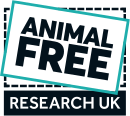Reducing the Use of Animal Models
Animal models currently play an important part in the development of medicines and other therapeutic strategies, as well as research aimed at understanding human disease. However there is also a desire to Replace, Reduce and Refine the use of animals (the 3Rs).
QMUL is a leader in research aimed at developing the 3Rs and has particular strength in in vitro technologies that can replace animals in research. As in vitro models have evolved and incorporated more sophisticated technology, the Replacement of animal models has become an increasing important aim of our research agenda. In addition to the ethical desire for replacing animal models, new in vitro models using human cells can provide a human-relevant model that can give more accurate prediction of human biology. The Centre for Predictive in vitro Models aims to build on our strengths in the 3Rs and drive the development of the next generation of in vitro human models at QMUL. As part of this, we work closely with organisations such as NC3Rs and Animal Free Research UK.


Animal Replacement Centre
To take forward the the drive to replace animals in cancer research, we have teamed up with the Animal Replacement Centre (ARC) within the Blizard Institute, QMUL. The ARC is a centre of excellence that uses cutting edge scientific research to accelerate the development of accurate human cancer models and reduce the number of animals used in cancer research. Funded by Animal Free Research UK, and directed by Prof Mike Philpott and Dr Adrian Biddle, the ARC is improving the ability to predict the behaviour of human cancer using in vitro human models. Since launching, the ARC has attracted further funding from the National Centre for the 3Rs (NC3Rs) to develop a metastasis on a chip model, and Oracle Head & Neck Cancer UK to pursue the use of in vitro models for development of a clinically predictive disease signature for oral cancer.



